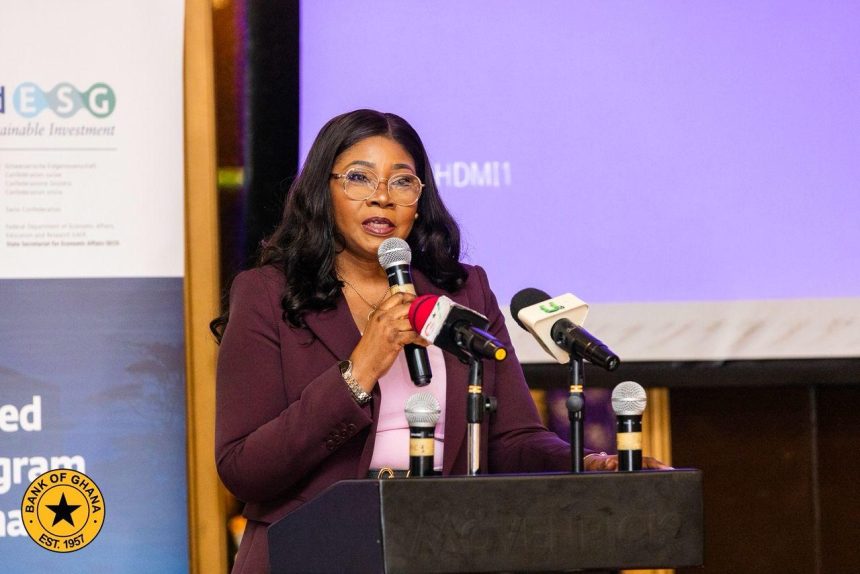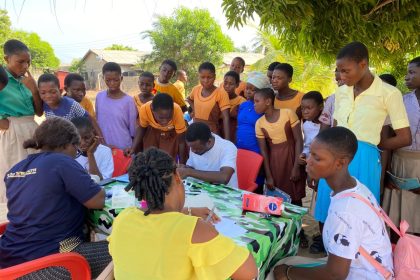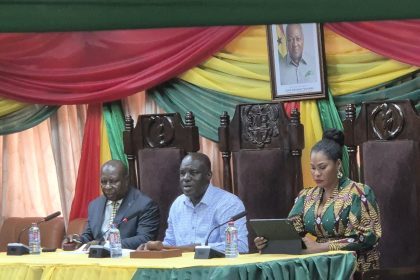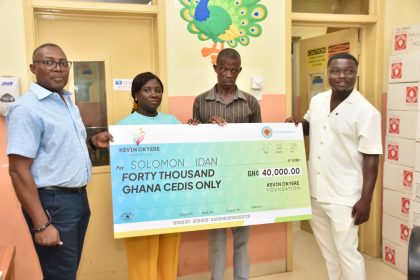Mrs Matilda Asante-Asiedu, the Second Deputy Governor of the Bank of Ghana, has urged banks to think beyond profit-making and consider the environmental and social implications of their investments in the extractive sector.
She said while the sector comprising mining, oil, and gas, contributed a significant 20% to Ghana’s GDP in the first half of the year, its impact on the environment and sustainability was also a major concern.
“If we’re lending to the right people, making sure that our investments are sustainable, it can actually go together with profit-making,” she noted.
Mrs Asante-Asiedu was addressing industry stakeholders at the fourth in a series of training programmes on Ghana Sustainable Banking Principles with focus on the extractives sector.
The training was designed for Environment and sustainability staff, and relationship managers of banks to better understand the Ghana Sustainable Banking Principles (GSBPs) and the requirements of the banks in implementing these environmental, social and governance (ESG) best practices.
The event brought attention to the critical role of the financial sector in promoting sustainable practices in the extractive industry, which is a backbone of Ghana’s economy.
The workshop discussed the IFC performance standards, which provide guidelines for businesses and financial institutions to identify, assess, and manage environmental and social risks.
Mrs Asante-Asiedu pointed out that lending to environmentally responsible projects could actually support long-term profitability and value creation for shareholders.
“By prioritizing sustainability, financial institutions can help mitigate the sector’s environmental risks
while also ensuring long-term profitability and value creation for shareholders,” she said.
Mrs Yewande Giwa, IFC Senior Country Officer, noted that the session was part of a broader effort to deepen understanding of environmental and social risks across sectors.
She emphasized that effective management of these risks was crucial for sustainable and responsible business practices.
“The extractive industry is a fundamental pillar of the Ghanaian economy, accounting for a significant portion of Ghana’s revenue. The environmental and social risks need to be managed in order for this sector to contribute to long-term growth in the country,” she said.
“When banks and other financial institutions integrate these practices into their operations, they not only protect themselves from financial and reputational risk, but they also curtail harmful practices like illegal mining by cutting off finance from non-compliant operators.
“Together, we can ensure that Ghana’s extractive sector remains a key driver of sustainable and inclusive growth, and that our natural environment is preserved for generations to come. “
Mr John Awuah, Chief Executive Officer Ghana Association of Banks, said despite the strong contribution of the extractive sector to national development, it also presented challenges for sustainability, climate resilience, and agricultural growth.
“Mining consumes vast amounts of water and energy. Oil extraction poses risks to coastal and marine biodiversity, and the cumulative environmental debt from unsustainable practices threatens the very ecosystems on which future generations will depend,” he said.
Mr Awuah said the Ghana Association of Banks would continue to intensify collaboration with regulator and development partners to build a dual-capacity framework, one that strengthens ESG competencies within banks and enhances
compliance readiness within the extractive sector and services.
GNA






